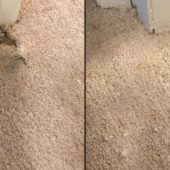Maintaining a lush, green lawn in North Carolina can be a rewarding endeavor, but it comes with its unique challenges due to the state’s diverse climate. Whether you’re a new homeowner or a seasoned gardener, understanding the essentials of lawn care is crucial for achieving a healthy and attractive lawn. This article provides comprehensive tips and strategies tailored specifically for North Carolina homeowners to help you navigate the intricacies of lawn care in this region.
Key Takeaways
- Choosing the right grass type is essential for a healthy lawn in North Carolina’s varied climate.
- Proper mowing techniques and effective watering strategies are crucial for lawn maintenance.
- Preventative measures and treatment options are necessary to deal with common lawn pests and diseases.
- Seasonal lawn care tips help in maintaining the lawn’s health throughout the year.
- Eco-friendly lawn care solutions, such as organic fertilizers and water conservation techniques, are beneficial for the environment.
Choosing the Right Grass for North Carolina Lawns
When selecting grass for your North Carolina lawn, it’s essential to consider the climate, soil conditions, and exposure to sunlight and shade. The state’s diverse climate supports both cool-season and warm-season grasses, making it crucial to choose the right type for your specific region.
Warm-Season Grasses
Warm-season grasses thrive in the hot, humid summers of North Carolina. These grasses are well-suited for the coastal plain and central regions. Popular choices include Bermudagrass, Zoysiagrass, centipedegrass, St. Augustinegrass, and carpetgrass. These grasses are known for their drought tolerance and ability to withstand high temperatures.
Cool-Season Grasses
Cool-season grasses are ideal for the cooler climates of North Carolina, particularly in the western regions. Kentucky bluegrass, fescues, and ryegrass are common choices. These grasses stay green year-round but may struggle during the hot summer months.
Transition Zone Grasses
North Carolina’s central and western regions fall into a "transition zone," where both warm-season and cool-season grasses can thrive. This unique climate allows homeowners to choose from a variety of grass types, depending on their specific needs and preferences. The North Carolina Cooperative Extension offers an online tool to help you choose the right turf for your area, providing descriptions, planting, and maintenance instructions for the best warm-season grasses.
Essential Lawn Maintenance Practices

Proper Mowing Techniques
Maintaining the correct mowing height is crucial for a healthy lawn. Cutting your grass too short can stress the plants and make them more susceptible to pests and diseases. Aim to remove no more than one-third of the grass blade length at a time. Regularly sharpen your mower blades to ensure clean cuts, which help prevent disease.
Effective Watering Strategies
Watering your lawn effectively involves deep and infrequent watering sessions. This encourages deep root growth, making your lawn more drought-resistant. Early morning is the best time to water, as it reduces evaporation and allows the grass to dry before nightfall, minimizing disease risk.
Fertilization Tips
Proper fertilization is key to a lush, green lawn. Use a balanced fertilizer and follow the recommended application rates. Over-fertilizing can lead to nutrient runoff and environmental damage. Consider using a slow-release fertilizer to provide a steady supply of nutrients over time.
Consistent lawn maintenance practices not only enhance the beauty of your yard but also contribute to the overall health of your grass, making it more resilient to stress and adverse conditions.
Dealing with Common Lawn Pests and Diseases
Maintaining a healthy lawn in North Carolina involves dealing with various pests and diseases. Proper identification and timely intervention are crucial to keep your lawn lush and green.
Seasonal Lawn Care Tips for North Carolina
Spring Lawn Care
Spring is the time to rejuvenate your lawn after the winter months. Start by dethatching to remove dead grass and debris. Follow this with aeration to improve soil compaction. Apply a pre-emergent herbicide to prevent weeds and fertilize to promote healthy growth.
Summer Lawn Care
North Carolina’s scorching summer heat may be perfect for an afternoon by the pool, but too much sun can harm and exhaust your grass. To help it look its best, here are a few summer lawn care tips for North Carolina lawns:
- Mow your lawn regularly, but keep the grass a bit longer to provide shade for the roots.
- Water deeply and infrequently to encourage deep root growth.
- Watch out for pests and diseases, as they can be more prevalent in the summer.
Summers are meant to be relaxing, but lawn diseases and pests don’t take a vacation. Lawn care is important even during the dog days of summer.
Fall and Winter Lawn Care
As temperatures drop, prepare your lawn for the colder months. Overseed with cool-season grasses to keep your lawn green. Rake leaves regularly to prevent mold and apply a winter fertilizer to strengthen the roots. Proper winter preparation ensures a lush lawn come spring.
Eco-Friendly Lawn Care Solutions
Organic Fertilizers
Organic fertilizers are a great way to nourish your lawn without harming the environment. They release nutrients slowly, improving soil health over time. Using organic fertilizers can lead to a more sustainable and resilient lawn. Some popular options include compost, manure, and bone meal.
Natural Weed Control
Maintaining a weed-free lawn doesn’t have to involve harsh chemicals. Natural weed control methods include manual weeding, mulching, and using vinegar or corn gluten meal as a pre-emergent herbicide. These methods are not only effective but also safe for pets and children.
Water Conservation Techniques
Water conservation is crucial for an eco-friendly lawn. Implementing strategies like rainwater harvesting, using drought-resistant grass varieties, and installing efficient irrigation systems can significantly reduce water usage. Drip irrigation systems are particularly effective, as they deliver water directly to the roots, minimizing waste.
Adopting eco-friendly lawn care practices not only benefits the environment but also creates a healthier and more sustainable outdoor space for your family and community.
Lawn Renovation and Repair
Lawn renovation refers to any procedure beyond normal maintenance required to upgrade an existing lawn. A deteriorated lawn is often a symptom of some underlying problem. Failure to identify and correct the exact problem can lead to further lawn deterioration and the need for repeated renovation. The problems that caused the lawn to deteriorate must be corrected before the renovation process begins.
Landscaping Enhancements for a Healthier Lawn
Mulching plays a crucial role in maintaining soil moisture and regulating temperature. It also helps in suppressing weeds and adding organic matter to the soil, which improves its structure and fertility. By using organic mulch, you can create a more sustainable and eco-friendly lawn.
Native plants are well-adapted to the local climate and soil conditions, making them easier to maintain. They require less water and are more resistant to local pests and diseases. Incorporating native plants into your landscape can enhance biodiversity and support local wildlife.
Strategically planting trees and shrubs can provide shade, reducing the lawn’s water needs and protecting it from harsh winds. This not only conserves water but also creates a more comfortable outdoor living space. Additionally, shade can help prevent the lawn from becoming too stressed during the hot North Carolina summers.
A landscape you can feel good about is one that not only looks beautiful but also supports a healthy ecosystem.
Transform your lawn into a lush, green paradise with our expert landscaping enhancements. Our team uses 98% natural products to ensure your lawn is not only beautiful but also healthy and safe for your family and pets. Ready to give your lawn the care it deserves? Visit our website to learn more and book your appointment online 24×7.
Conclusion
Maintaining a beautiful lawn in North Carolina requires a combination of understanding the local climate, choosing the right grass type, and implementing effective lawn care practices. By following the essential tips outlined in this article, homeowners can ensure their lawns remain lush and healthy throughout the year. Remember, regular maintenance and timely interventions are key to preventing common lawn issues. For those seeking professional assistance, Carpet Pro Cleaners offers a range of services, including carpet cleaning, upholstery cleaning, and tile & grout cleaning, using environmentally-friendly products. Their expertise can help keep your home and lawn in pristine condition. For more information, visit their website at carpetprocleaners.com.
Frequently Asked Questions
What are the best grass types for North Carolina lawns?
North Carolina’s climate supports a variety of grass types. For warm-season grasses, Bermuda and Zoysia are popular choices. For cool-season grasses, Fescue is a common option. The state also falls in the transition zone, where a mix of both warm and cool-season grasses can thrive.
How often should I mow my lawn?
The frequency of mowing depends on the type of grass and the season. Generally, you should mow your lawn once a week during the growing season. Make sure not to cut more than one-third of the grass blade length at a time to avoid stressing the lawn.
What are effective watering strategies for North Carolina lawns?
Watering deeply but infrequently is the key. Aim for about 1 inch of water per week, including rainfall. Early morning is the best time to water to reduce evaporation and fungal growth.
How can I prevent and treat common lawn pests and diseases?
Regular lawn maintenance, such as proper mowing, watering, and fertilization, can help prevent pests and diseases. For treatment, identify the specific pest or disease and use appropriate eco-friendly pesticides or fungicides. Consulting with a local lawn care expert can also be beneficial.
What are some eco-friendly lawn care solutions?
Eco-friendly lawn care solutions include using organic fertilizers, natural weed control methods like mulching, and water conservation techniques such as rain barrels and drip irrigation systems.
When is the best time to aerate and overseed my lawn?
The best time to aerate and overseed your lawn in North Carolina is during the fall. This allows the grass to establish strong roots before the winter and be ready for vigorous growth in the spring.



